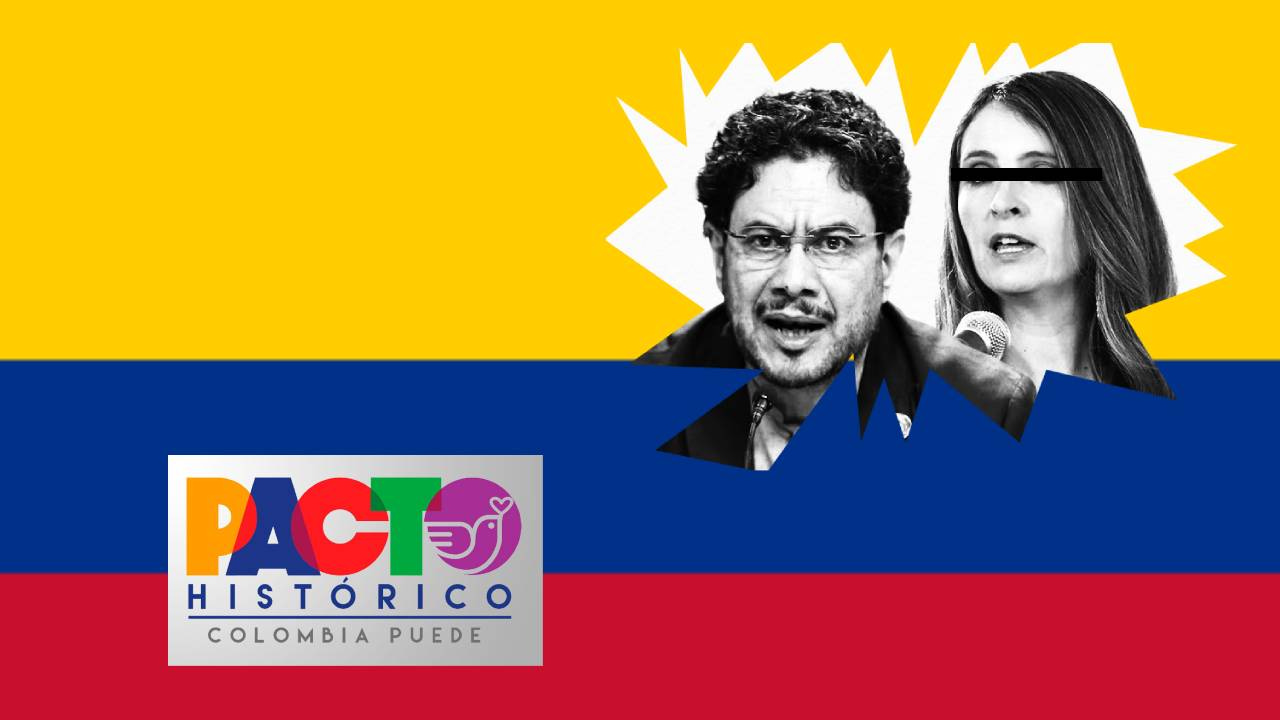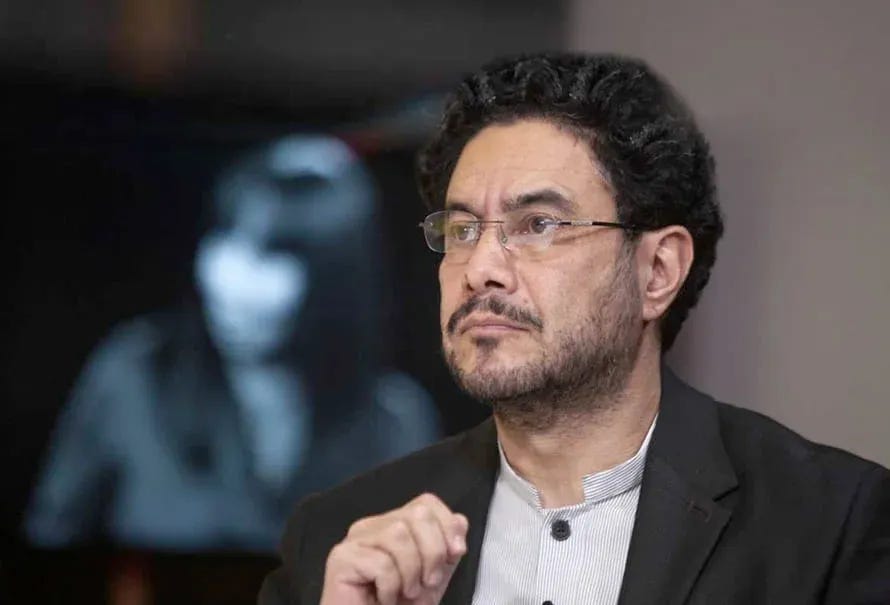How Colombia’s election authority is preventing a united left ahead of the 2026 vote
With presidential primaries starting in just two weeks, council tosses a wrench into the ballot process
Today’s feature is by Adriann Alsema from Colombia Reports.
Colombia’s notoriously inept National Electoral Council (CNE) is blocking attempts by the left to form a united progressive front ahead of the 2026 elections.
In a series of incomprehensible rulings, the electoral court appears to have thwarted efforts by leftist parties to form one party, “Historic Pact,” and to elect a single candidate to represent the coalition during primary ballots on October 26.
The left’s ambitions for 2026
Colombia holds presidential elections on May 2026 and party primaries are about to officially launch. The five left-wing parties of President Gustavo Petro’s Historic Pact coalition awant to merge into a single political party with the same name in December 2024.
This merger would allow Petro’s coalition to organize presidential and congressional primaries on October 26 and allow the winner of the presidential primary to take part in a multiparty “Broad Front” election held on the congressional election day in March.
Parties that want to merge
Colombia Humana
Started out as the political movement of President Gustavo Petro in 2011.Alternative Democratic Pole
Founded in 2005 through a merger of two left-wing parties. Let-wing Senator, Ivan Cepeda, who currently leads in polling among the coalition, serves as the party’s Senate leader.
Patriotic Union
Emerged in 1985 as part of peace talks between guerrillas and the government. Thousands of its members were murdered during Colombia’s civil war an attempt to exterminate the left.Progresistas
Led by Maria Jose Pizarro, daughter of slain guerrilla leader Carlos Pizarro.Colombian Communist Party
Founded in 1930 as one of Colombia’s oldest left-wing parties.
By unifying their forces, the leftist forces hope to become Colombia’s largest political party in the congressional elections and jointly campaign to secure the election of progressive president to follow Petro next year.
If successful, the Historic Pact and its Broad Front coalition partners, which include liberal dissidents, would give the left a majority in Congress for the first time in history.
Petro’s main weakness as president was his failure to push through reforms through a Congress that was dominated by the traditional parties and the far-right “Uribistas.”
The role of the CNE
In order to fulfill their ambitions, the Historic Pact needed the approval of the National Electoral Council (CNE), a notoriously dysfunctional electoral “court.”
The magistrates of the court are proposed by the political parties and elected by the Congress at the beginning of its four-year term.
CNE magistrates
Alvaro Hernan Prada (Democratic Center)
Alfonso Campo (Conservative Party)
Altus Alejandro Baquero (Liberal Party)
Álvaro Echeverry (Radical Change)
Fabiola Marquez (Historic Pact)
Maritza Martínez (U Party)
Benjamin Ortiz (Liberal Party)
Alba Lucía Velásquez (Historic Pact)
Cristian Ricardo Quiroz (Green Alliance)
Because Congress elects the magistrates, the CNE has been criticized for representing major political parties and protecting their interests instead of fulfilling its regulatory role.
The CNE decides who to investigate and sanction, which has led to arbitrary and politically motivated acts in defense of the established parties in the past.
And because new parties tend to threaten existing ones, the magistrates have an incentive to act against the formation of new parties.
The CNE’s selective and politically motivated decisions are evident in the cases of Colombia Humana and the Historic Pact.
The Constitutional Court ruled in 2021 that the CNE violated Petro’s constitutional rights by its refusal to recognize the president’s Colombia Humana as a party.
The Electoral Observation Mission (MOE), an NGO that monitors elections in Colombia, on multiple occasions criticized the CNE for its lack of neutrality and has called for reforming the institution.
The director of the NGO, Alejandra Barrios, stated that “it is essential to maintain a proposal that excludes the participation of either the Congress of the Republic or political organizations in the nomination and election of CNE members. This condition becomes non-negotiable by maintaining the oversight and control functions over the same organizations.”
“It would reinforce the problem of the high concentration of power in the hands of national political forces, many of which have taken advantage of this privileged position to control resources and public offices,” Barrios added.
The MOE has on multiple occasions called for structural reforms, which have not succeeded due to “a lack of political will to pursue the political and electoral reform the country deserves.”
Congress hasn’t even tried to reform the CNE, which is now again clashing with Petro and the left in general.
The clash between the Historic Pact and the CNE
The CNE became the center of attention again after Petro’s coalition parties formally filed their request to merge with the CNE on June 13, 2025.
In a preliminary decision that was announced on September 8th, the CNE approved the merger but banned the participation of Colombia Humana and Progresistas.
In this initial ruling, the CNE claimed that Petro’s party needed the explicit approval of two-thirds of its 114,381 members to be allowed in the Historic Pact party.
Additionally, the CNE argued that Colombia Humana was not allowed to merge, as it is currently under investigation by the electoral court.
The legality of the investigation into alleged irregularities in the financing of Colombia Humana’s 2022 campaign, which was started by the far-right representative in the court, has been challenged by all parties on the left.
A Bogota court subsequently ordered the National Registry to proceed with the organization of the October 26 primary while the leftist coalition appealed the CNE decision.
The three primary candidates were allowed to run as long as they were backed by one of the parties that had been allowed into the Historic Pact party.
The parties agreed, and the candidates got their backing from other parties than Colombia Humana or Progresistas.
Primary candidates
Ivan Cepeda (Alternative Democratic Pole)
Carolina Corcho (Patriotic Union)
Daniel Quintero (Communist Party)
The National Registry printed the ballots as ordered by the court and agreed by the participating parties.
The CNE made the situation even worse earlier this week when the electoral court ruled in a seven-to-two decision that the Historic Pact will have to elect a candidate in a multipartite election instead of a primary.
Consequently, the Historic Pact candidate would not be allowed to take part in the multipartite Broad Front election that sought to elect one leftist candidate in March.
To make things worse, the CNE effectively banned the use of the National Registry ballots because they carry the Historic Pact logo.
While analysts and media are trying to understand what on earth is happening, the president said that the CNE “forcibly thwarted” the primary in an “anti-democratic blow” against the left.
The National Registry said that it neither had the time nor the budget to design and print new ballots before October 26.
Now what?
In response to the latest rulings, Quintero withdrew from the race and said that he would run as an independent, which would make him a rival of the leftist candidate in the first round of elections.
Corcho and Cepeda reaffirmed that they would continue with the primary election.
Cepeda, the favorite, maintained that the October 26 primary will go ahead as planned.
We are going to move forward. On October 26, there will be a consultation, both for Congress and for the elections that will determine who will be the pre-candidate for the Historic Pact in March.
Ivan Cepeda
The primary candidate also asserted that he is going to ask the CNE to certify that the election is strictly internal, “so that there are no doubts about this particular matter.”
If the CNE refuses, “we will have a problem,” said Cepeda, suggesting that, also this year, the electoral court’s problematic rulings will end up at the Constitutional Court.
You can also donate a one-time gift via “Buy Me a Coffee”. It only takes a few moments, and you can do so here.
And if you can’t do any of that, please do help us by sharing the piece! We don’t have billionaire PR teams either.



